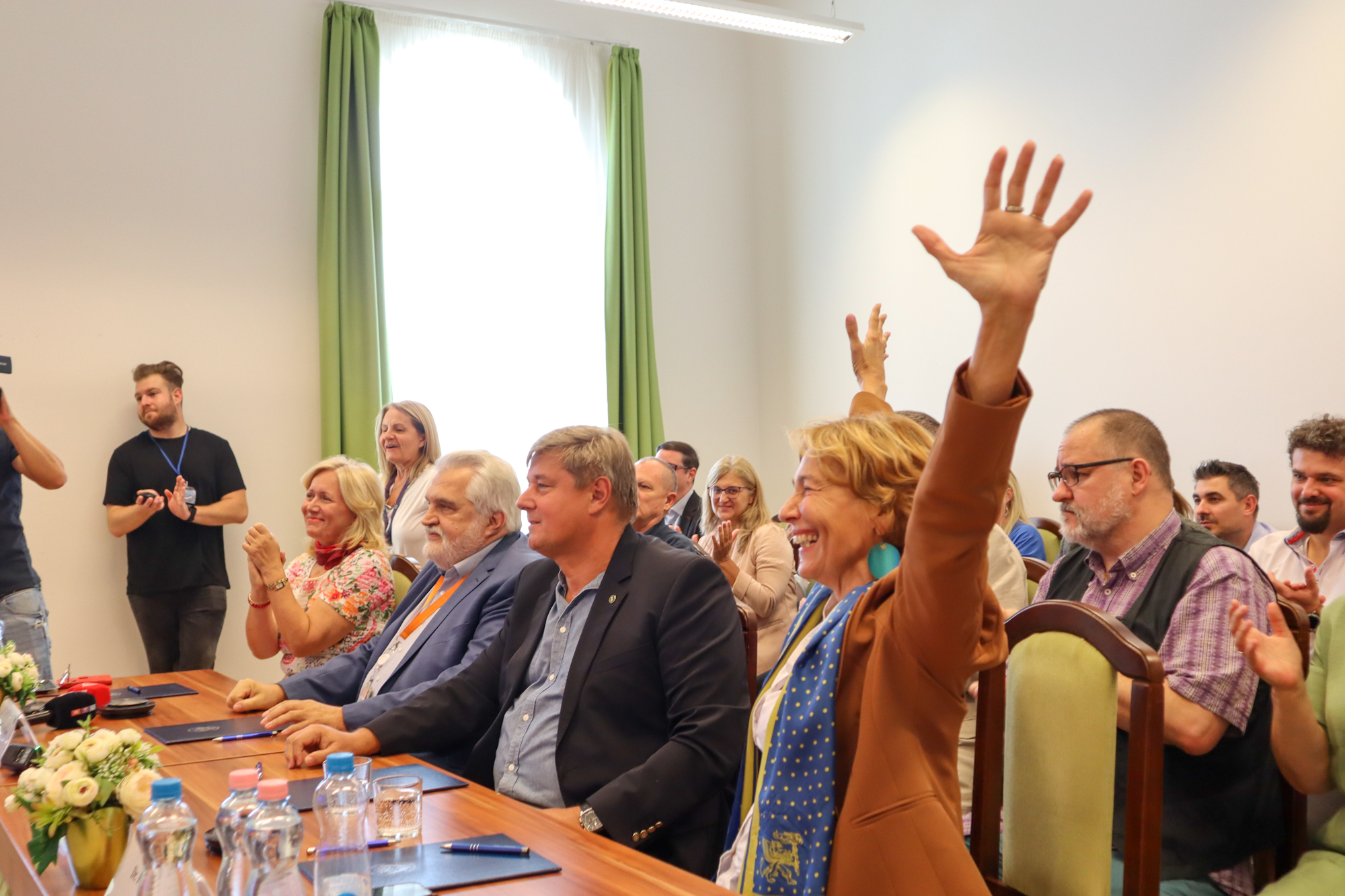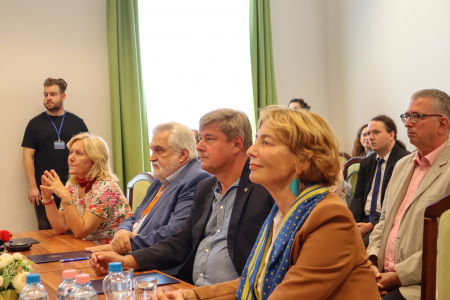
Katalin Karikó and Drew Weissman received the 2023 Nobel Prize in Physiology or Medicine as the inventors of the modified messenger RNA used in modern COVID-19 vaccines, and as the developers of mRNA therapy, which opens a new path in medicine, announced the Nobel Assembly in Solna, Sweden, on Monday, October 2.
Katalin Karikó, research professor and former student of the University of Szeged, adjunct professor of the University of Pennsylvania, together with her colleague Drew Weissman, professor of the University of Pennsylvania, received the Nobel Prize for their work nearly three years after the rollout of mRNA vaccines across the world.
After the announcement, the life and career of Katalin Karikó — including her perseverance after being displaced from previous research positions — were summarized for the audience.
Since 1901, the Nobel Foundation has been granting awards to individuals whose groundbreaking achievements have significantly contributed to the betterment of humanity. These prestigious prizes are presented to laureates who have excelled in fields such as physics, chemistry, physiology or medicine, literature, peace, and economics. It's worth noting that the number of Nobel Prize recipients is less than 1,000, and prior to this recognition, only 225 individuals had received the Nobel Prize in Physiology or Medicine. Dr. Karikó is only the 61st woman ever to receive the prestigious title of Nobel Laureate.
For four decades, Dr. Katalin Karikó dealt with the mechanisms mediated by RNA: she wanted to develop the mRNA molecule transcribed under laboratory conditions to be suitable for protein therapy. Along with immunologist Dr. Drew Weissman, she discovered that the pro-inflammatory effects of RNA are suppressed by nucleoside modifications. This groundbreaking work, the two researchers' patents on nucleoside-modified uridines in mRNA, paved the way for the therapeutic use of mRNA—for example, in the treatment of cancer, as well as autoimmune, infectious, and genetic diseases.
The development of mRNA-based vaccines, which play a key role in curbing the COVID-19 pandemic, directed the world's attention to the importance of Dr. Katalin Karikó's discoveries about messenger RNA. So far, she has been elected a member of 6 scientific academies for her breakthrough performance in medical technology; 15 universities awarded her an honorary doctorate; she received more than 70 scientific awards and numerous social recognitions. Dr. Karikó turned each of these prize-giving ceremonies into new forums for the promotion of science.

The Nobel Prize announcement was streamed live from Sweden on the Nobel Assembly's YouTube channel. The leadership of the University of Szeged, together with several professors and the members of the media gathered at the university's main building to follow the announcement live and to briefly congratulate Prof. Karikó during a live video call. Regarding a question of what message she has now for university students in Hungary, the new Nobel laureate said that she advises students to pay attention to their physical and mental health and learn to manage stress. "They should do what they do with joy because then they will get better at it! They should focus on what they can change" she said.

SZTEInfo - Szilvia Molnár
Photos by: Szilvia Molnár

